Peugeot 2008 vs Vauxhall Astra – Differences & prices compared
Compare performance, boot space, consumption and price in one view.
Find out now: which car is the better choice for you – Peugeot 2008 or Vauxhall Astra?
The Peugeot 2008 (SUV) comes with a Petrol, Electric or Petrol MHEV engine and Manuel or Automatic transmission. In comparison, the Vauxhall Astra (Hatchback) features a Petrol, Diesel, Electric, Petrol MHEV or Plugin Hybrid engine with Manuel or Automatic transmission.
When it comes to boot capacity, the Peugeot 2008 offers 434 L, while the Vauxhall Astra provides 422 L – depending on how much space you need. If you’re looking for more power, decide whether the 156 HP of the Peugeot 2008 or the 225 HP of the Vauxhall Astra suits your needs better.
In terms of consumption, the values are 15.50 kWh5 L per 100 km for the Peugeot 2008, and 15.60 kWh2.20 L for the Vauxhall Astra.
Price-wise, the Peugeot 2008 starts at 23800 £, while the Vauxhall Astra is available from 25000 £. Compare all the details and find out which model fits your lifestyle best!
In a head-to-head comparison, the Opel Astra stands out with its robust performance and refined driving dynamics, offering a smooth ride that appeals to both casual drivers and enthusiasts. Meanwhile, the Peugeot 2008 impresses with its stylish design and advanced technology features, making it a strong contender for those seeking a compact crossover with urban flair. Ultimately, the choice between these two models will come down to personal preference: the Astra for traditional hatchback reliability or the 2008 for a fashionable, versatile experience.
Peugeot 2008
The Peugeot 2008 stands out in the compact SUV market with its blend of striking design and practical functionality. It offers a comfortable ride with a sophisticated interior that exudes quality, making it ideal for both urban commutes and longer journeys. The model's efficient performance and range of modern features further enhance its appeal to a diverse range of drivers.
details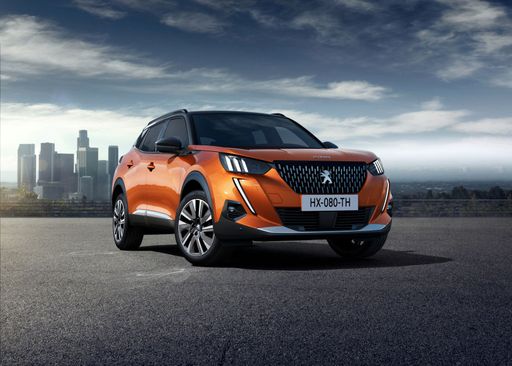 @ media.stellantis.com
@ media.stellantis.com
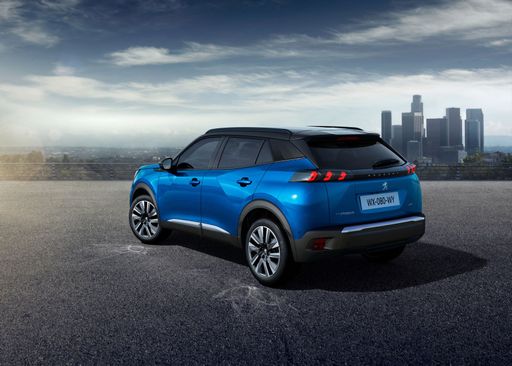 @ media.stellantis.com
@ media.stellantis.com
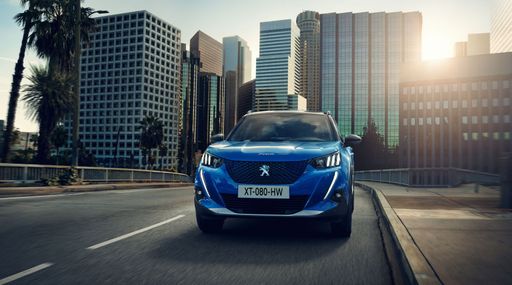 @ media.stellantis.com
@ media.stellantis.com
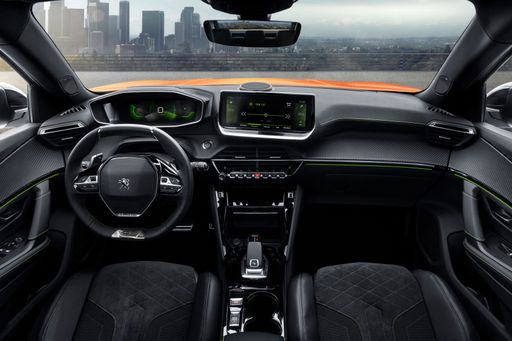 @ media.stellantis.com
@ media.stellantis.com
Vauxhall Astra
The Opel Astra exudes a sleek and modern design, making it a standout choice in the compact car segment. Its interior is thoughtfully crafted, providing both comfort and cutting-edge technology for an enhanced driving experience. The vehicle is also celebrated for its efficient performance, adeptly balancing power with fuel economy to suit urban and long-distance journeys alike.
details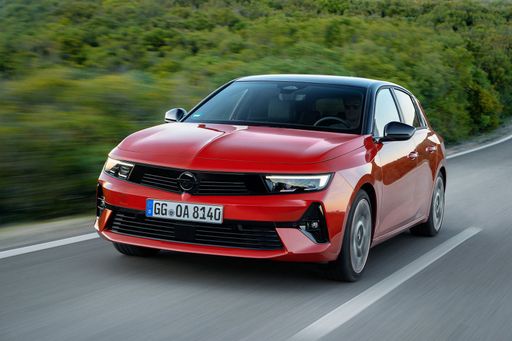 @ www.media.stellantis.com
@ www.media.stellantis.com
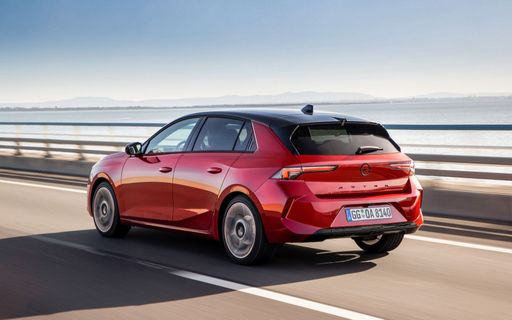 @ www.media.stellantis.com
@ www.media.stellantis.com
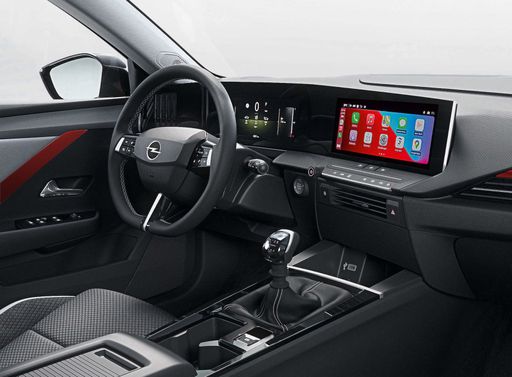 @ www.media.stellantis.com
@ www.media.stellantis.com
When choosing a compact yet versatile vehicle, the 2024 Opel Astra and the 2024 Peugeot 2008 emerge as formidable contenders. Each offers a unique blend of performance, design, and technology. This article delves into a detailed comparison of these two models, exploring their technical aspects and innovative features to help you decide which vehicle merits your attention.
Design and Build
The Opel Astra, characterized as a hatchback, exudes a sporty yet sophisticated charm with dimensions of 4374 mm in length, 1860 mm in width, and a height range of 1441 mm to 1442 mm, depending on the variant. The Peugeot 2008, on the other hand, adopts a more robust SUV profile, measuring 4304 mm long, 1770 mm wide, and standing 1523 mm high. The SUV body type of the 2008 provides a commanding driving position and a more rugged aesthetic, appealing to those who prioritize a higher driving stance.
Powertrain Options
The powertrain configurations availabil in these two vehicles are worth noting. The Astra offers a variety of engine types, including petrol MHEV, petrol, diesel, plug-in hybrid, and even a fully electric variant, making it versatile for different driving needs. With engine outputs ranging from 110 to 225 horsepower and torque variations of 205 to 360 Nm, the Astra presents options for both casual drivers and performance enthusiasts.
Contrarily, the Peugeot 2008 offers a slightly simpler lineup, featuring petrol, petrol MHEV, and electric options, with power outputs from 101 to 156 horsepower and torque from 205 to 270 Nm. This choice caters well to drivers looking for fuel efficiency with the added advantage of electric range in their driving experience.
Performance and Dynamics
In terms of acceleration, the Astra showcases impressive numbers, with some variants achieving 0-100 km/h in as little as 7.5 seconds, which is quite sporty for a compact hatchback. The Peugeot 2008, while also commendable, records a best of 8.3 seconds in the same sprint. These figures illustrate the Astra's quicker response, making it suitable for those who enjoy spirited driving.
Fuel Efficiency and Sustainability
Fuel consumption is becoming increasingly important to car buyers, and both vehicles perform well in this regard. The Astra’s petrol engines present a range of fuel consumption from 5 to 5.8 L/100 km, while its electric variant impressively consumes just 1.3 L/100 km equivalent. The Peugeot 2008 matches closely but leans towards a higher consumption rate of 5 to 5.7 L/100 km, alongside its electric counterpart which also yields an efficient 15.5 kWh/100 km.
Technology and Innovation
Both models come equipped with a host of technological features aimed at enhancing driver comfort and safety. The Astra includes modern infotainment systems with seamless smartphone integration, advanced driver assistance systems, and an intuitive layout that improves usability. In contrast, the Peugeot 2008 focuses on its stylish i-Cockpit design, which transforms driving into a more interactive experience using a digital interface and customizable information displays.
Interior Space and Practicality
Interior comfort is a crucial aspect when choosing a vehicle. The Astra provides a sizable trunk capacity of 422 liters, making it practical for everyday use or weekend getaways. The Peugeot 2008 offers a slightly larger trunk space at 434 liters, coupled with the higher seating position that offers a more spacious feel in the cabin. Both vehicles comfortably seat up to five passengers, accommodating families or groups with ease.
Conclusion
In summary, the decision between the Opel Astra and the Peugeot 2008 boils down to individual preferences and lifestyle needs. The Astra leans toward sporty performance and diverse engine options, while the 2008 provides a trendy SUV stature and reliable electric performance. Whichever model you choose, both vehicles signify the innovation and quality that their respective brands represent.

|

|
|
|
|
Costs and Consumption |
|
|---|---|
|
Price
23800 - 38300 £
|
Price
25000 - 40500 £
|
|
Consumption L/100km
5 - 6.2 L
|
Consumption L/100km
2.2 - 6 L
|
|
Consumption kWh/100km
15.50 kWh
|
Consumption kWh/100km
15.60 kWh
|
|
Electric Range
406 km
|
Electric Range
82 - 418 km
|
|
Battery Capacity
51 kWh
|
Battery Capacity
51 kWh
|
|
co2
0 - 140 g/km
|
co2
0 - 135 g/km
|
|
Fuel tank capacity
44 L
|
Fuel tank capacity
42 - 52 L
|
Dimensions and Body |
|
|---|---|
|
Body Type
SUV
|
Body Type
Hatchback
|
|
Seats
5
|
Seats
5
|
|
Doors
5
|
Doors
5
|
|
Curb weight
1263 - 1623 kg
|
Curb weight
1341 - 1736 kg
|
|
Trunk capacity
434 L
|
Trunk capacity
352 - 422 L
|
|
Length
4304 mm
|
Length
4374 mm
|
|
Width
1770 mm
|
Width
1860 mm
|
|
Height
1523 mm
|
Height
1432 - 1488 mm
|
|
Payload
407 - 460 kg
|
Payload
414 - 509 kg
|
Engine and Performance |
|
|---|---|
|
Engine Type
Petrol, Electric, Petrol MHEV
|
Engine Type
Petrol, Diesel, Electric, Petrol MHEV, Plugin Hybrid
|
|
Transmission
Manuel, Automatic
|
Transmission
Manuel, Automatic
|
|
Transmission Detail
Manual Gearbox, Automatic Gearbox, Dual-Clutch Automatic
|
Transmission Detail
Manual Gearbox, Automatic Gearbox, Dual-Clutch Automatic
|
|
Drive Type
Front-Wheel Drive
|
Drive Type
Front-Wheel Drive
|
|
Power HP
101 - 156 HP
|
Power HP
130 - 225 HP
|
|
Acceleration 0-100km/h
8.3 - 10.9 s
|
Acceleration 0-100km/h
7.5 - 10.6 s
|
|
Max Speed
150 - 206 km/h
|
Max Speed
170 - 235 km/h
|
|
Torque
205 - 270 Nm
|
Torque
230 - 360 Nm
|
|
Number of Cylinders
3
|
Number of Cylinders
3 - 4
|
|
Power kW
74 - 115 kW
|
Power kW
96 - 165 kW
|
|
Engine capacity
1199 cm3
|
Engine capacity
1199 - 1598 cm3
|
General |
|
|---|---|
|
Model Year
2023 - 2025
|
Model Year
2023 - 2025
|
|
CO2 Efficiency Class
D, A, E, C
|
CO2 Efficiency Class
D, A, C, B
|
|
Brand
Peugeot
|
Brand
Vauxhall
|
Peugeot 2008
Introducing the New Peugeot 2008: A Blend of Style and Innovation
The new Peugeot 2008 is a standout vehicle in the compact SUV segment, combining dynamic styling with cutting-edge technology. Known for its versatility and impressive features, the 2008 offers more than just good looks. Let's delve into the technical nuances and innovative aspects that make this model a preferred choice among contemporary SUVs.
Engine Options and Performance
The Peugeot 2008 offers a variety of powertrain options to suit different driving needs. Whether you opt for the petrol Mild-Hybrid engine or the fully electric variant, each version delivers a unique driving experience. The engine range includes 1.2-litre petrol engines boasting up to 156 PS and an electric motor option offering the same power. With CO2 emissions ranging from 0 to 129 g/km and a top speed between 150 km/h to 206 km/h, the 2008 ensures efficiency without compromising on performance.
Advanced Technology and Features
The Peugeot 2008 is packed with innovative technology designed to enhance the driving experience. It includes an advanced infotainment system integrated with cutting-edge connectivity solutions. Drivers can enjoy a seamless connection to their digital life with features like smartphone compatibility, real-time navigation, and a configurable digital driver's display. Additionally, advanced driver-assistance systems provide enhanced safety and convenience, making every drive more reassuring.
Electric Powertrain: Embracing the Future
For eco-conscious drivers, the e-2008 variant offers an impressive electric range of 343 to 406 km, thanks to its efficient 46 to 51 kWh battery. With a consumption of just 15.5 to 15.9 kWh/100km, it stands out as an environmentally friendly option. The smoothness of its automatic transmission ensures a comfortable ride, while instant torque from the electric motor provides a thrilling driving experience.
Design and Practicality
Beyond its performance, the Peugeot 2008 flaunts a contemporary design that is both sporty and elegant. Its compact dimensions (4304 mm length, 1770 mm width, 1523 mm height) are accentuated by a streamlined profile and distinctive full LED headlights. Practicality isn't sacrificed either, with a spacious boot capacity of 434 litres and intelligent layout offering ample space for passengers and cargo.
Customisation and Comfort
The interior of the 2008 is crafted to offer comfort and luxury. With options ranging across different trim levels such as Allure, GT, and Style, customers can tailor their vehicle to their personal taste and requirements. High-quality materials and ergonomic seating ensure both driver and passengers travel in comfort, making even the longest journeys pleasant.
Value for Money
The Peugeot 2008 offers competitive pricing from €27,050 to €44,600, catering to a wide audience. With monthly costs ranging from €956 to €1,049 and an efficient cost per kilometre, it presents significant value for money. Its combination of style, technology, and practicality means it’s more than just a vehicle; it’s a smart investment.
In summary, the Peugeot 2008 stands as a remarkable choice in the SUV market, seamlessly blending style, technology, and efficiency. Whether you prioritise eco-friendliness, driving pleasure, or advanced tech features, the 2008 delivers on all fronts, making it a top contender for modern drivers.
Vauxhall Astra
Opel Astra: A Legacy of Innovation and Technology
The Opel Astra has been a staple in the automotive market, continuously evolving to integrate cutting-edge technology and innovation. The latest versions of the Astra model continue this tradition, offering a range of engine types and an array of features designed to enhance driving performance and efficiency.
A Comprehensive Range of Powertrains
The latest Opel Astra models boast a selection of advanced powertrains, providing options for every type of driver. From the efficiency-oriented Mild-Hybrid engines to the cutting-edge fully electric variants, the Opel Astra is tailored to meet diverse customer needs. Car enthusiasts can choose from petrol, diesel, and hybrid engine types, with power outputs ranging between 110 PS and 225 PS, ensuring both efficiency and performance.
Sustainability Meets Performance
In an era where sustainability is paramount, the Opel Astra makes significant strides with its eco-friendly models. The Plug-In Hybrid options within the range offer an impressive fuel consumption rate of just 1.3 L/100km, highlighting Opel's commitment to reducing carbon footprints. Furthermore, the fully electric Astra model boasts an extended range of up to 418 km, catering to the growing demand for zero-emission vehicles.
Advanced Driving Dynamics
The Opel Astra is not just about power; it also offers an exceptional driving experience. With advanced gear options such as automatic transmissions and fine-tuned manual gearboxes, the Astra ensures smooth transitions and responsiveness. The front-wheel-drive configuration provides balanced handling, making it suitable for various driving conditions.
Technology and Features Galore
Opel has equipped the Astra with a myriad of technological advancements aimed at enhancing the driving experience. Cutting-edge infotainment systems, driver-assistance features, and comfortable interiors make every journey enjoyable. Buyers can also choose from multiple trim levels to personalise their Astra, ensuring it fits their lifestyle perfectly.
A Versatile and Stylish Design
The Opel Astra's sleek and modern design makes a bold statement on the road. With dimensions of 4,374 mm in length and a width of 1,860 mm, the Astra strikes a confident pose. Despite its compact build, the hatchback offers ample interior space, including a boot capacity ranging from 352 to 422 litres, embodying practicality without compromising on style.
Value for Money
Starting at a competitive price range between 27,910 € and 47,260 €, the Opel Astra offers excellent value for its array of features and performance capabilities. Its cost-effectiveness is also evident in the monthly operational costs, making it an attractive option for consumers looking for a reliable and cost-efficient vehicle.
The Opel Astra continues to set benchmarks in the compact car segment, effortlessly blending innovation, sustainability, and performance. With its range of versatile powertrains and cutting-edge technology, the Astra is poised to meet the demands of modern drivers while contributing to a greener future.
Which drive types are available for the Peugeot 2008?
Available as .
The prices and data displayed are estimates based on German list prices and may vary by country. This information is not legally binding.
